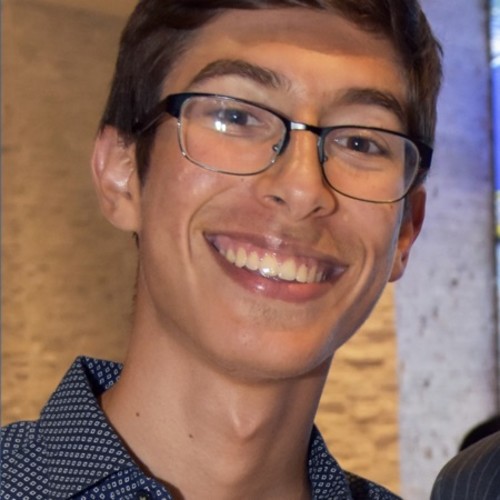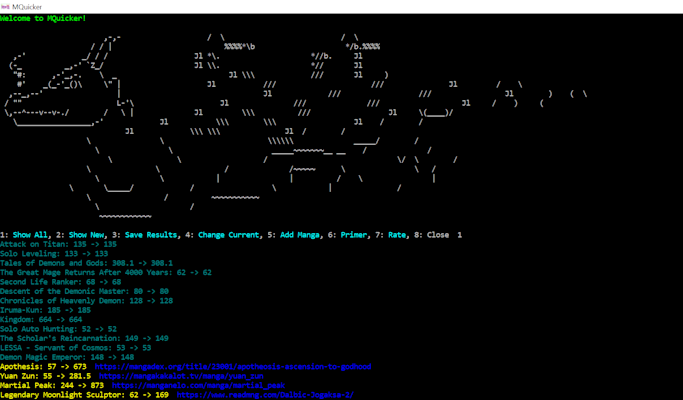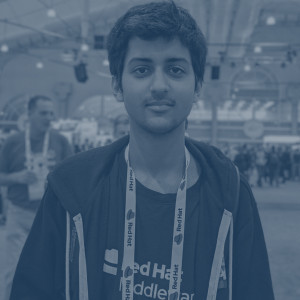Jacob Allen Kasner, 19

Until March 2020, Jacob’s coding skills were limited to Scratch games and Lego Robotics from middle school. As the United States went into a national quarantine, he had to decide if he still wanted to start university when his freshman year could be fully remote. He did not want to start college virtually, but he also could not change his life trajectory based on an event outside of his control, so Jacob started to figure out how he could take a growth year while making it meaningful and effective. Coding and data science intrigued him but had nothing to do with his intended major of Biomedical Engineering, so he created a Codecademy account and started learning. Jacob joined the hacker community after finishing a Codecademy career path and started building his own useful projects. Until his first hackathon, he had a disconnect between practicing SQL and Python and building an app with them as tools, and IvyHacks helped him cross that bridge and recognize how much he already knew. While enjoying the team event overall, Jacob applied his newfound skills to practice developing software independently.
Having done mostly solo coding, Jacob wants to explore organizational software development as well as open-source contribution and management. Working in an organization will help him understand the impact of an immediately deployed software project, and open-source contributions will let him see the scope of an actively used software project, both of which will help him expand his understanding of coding at different scales in team dynamics and apply his skills more effectively in future workplaces. Hackathons have also helped Jacob learn to code in crunch time, which helps not only with meeting deadlines but also with quickly creating minimum viable products. He aims to regularly contribute to open source and continue developing projects individually as a way of helping the community and honing skills that will be relevant for his entire career.
While it took a while for Jacob to understand technology, it has always been something that he has been fascinated by. His earliest exposure came from gaming consoles like the Nintendo DS Lite and Wii, and he used to frequently and gladly give technical support to friends, family, classmates, and even teachers, but he knew how much he had yet to explore in tech and did not feel like an expert. Learning to code in the past year has helped Jacob connect the dots and feel the deep sense of satisfaction that only comes from solving a long-sought-after question. Jacob finds the hacker community to be a really interesting group of people, and they have given him a new way to see problems when everyone shares a common tool to solve them. The community gave him the confidence to charge headfirst into daunting challenges knowing that at any moment he could call a friend to talk through an issue or do a quick web search to find a niche solution. The community has also given Jacob a sense of intellectually stimulating joy that exceeds his previous hobby, strategy board games. Jacob is glad he decided to learn to code and intends to work with the hacker community to tackle a wide range of inefficiencies.
Although he has not organized a hackathon, Jacob frequently helps organize hackers at hackathons, bootcamps, and in classrooms by constructing teams that highlight and support each member’s abilities to help them create a project they can all take pride in. Jacob helps teach hackers through mentorships where he clarifies concepts, and he was a teaching assistant at the Data Science 4 All boot camp where he hopes to return this summer to give back to the program that helped him learn coding and hone his own skills by teaching others. He also recently joined the German translation team for the system-design-primer, a popular interview prep resource on GitHub, after becoming conversationally fluent in German since starting to learn in March 2020.
As an MLH Fellow, Jacob worked with the United States Air Force to create a command-line data translator for electromagnetic environment combat simulators, which involved using Python to take XML datatype for the interrupt-based system and convert it to ASCII for more modern systems. The MLH Fellowship allowed him to practice connecting his communication and programming skills by conveying information about development through weekly check-ins, explaining the latest improvements and asking the right questions to get past impediments. Working on the project let Jacob evolve his Python abilities to make more efficient and understandable code, and his partner’s work in C++ exposed him to other implementation and organization ideas. He also honed his debugging skills, as fixing your own errors in an independent project is much different from finding and fixing issues related to a partner’s code on a large-scale project. Such work taught Jacob how to review complex modular code and, with enough time, understand it as if he had written it himself. The MLH Fellowship really prepared Jacob to enter the software development workforce by setting him in a quasi-work environment with a coworker, project manager, and client team whose needs they satisfied, and he developed invaluable connections to people he can call upon in the future either for help or collaboration. When Jacob turns his focus back to bioengineering after starting university, he will gain domain knowledge that will only further supplement and add to the job-ready skills he acquired so early in life thanks to MLH and the hacker community.
MQuicker is by far Jacob’s favorite hack, a Python script that lets users quickly and easily check to see if their favorite manga have had new chapters published, supporting webcomics from a wide array of websites. Working on this project was the first time he automated a daily task and took it through the whole life cycle. In the beginning, he resisted expanding it for fear of judgment and disinterest, but his ambition and desire to continue making it better for himself pushed his development forward. From conception to release, Jacob spent two and a half months and hundreds of hours learning Python, debugging, and improving the codebase to incorporate web scraping, data management, and user interfacing. Expanding the project brought him to many barriers, and he loved breaking them down one by one. MQuicker is now an open-source project freely available for download through a shell script. Other open-source developers in the community reached out to him about contributing, so he added a feature backlog to the repository and began helping the junior developers help him. Jacob is looking forward to creating even better Hobbies & Leisure SaaS products in the future.
This summer, Jacob will work as a Software Engineering intern at SparrowFi, a start-up seeking to fix the shortfalls of student lending. His day-to-day work focuses on building out the serverless mobile backend using Amazon Web Services like Lambda, API Gateway, and AppSync. The experience is his first full-time job, and despite presenting him with great challenges, he enjoys gaining new skills by tackling and overcoming them.
Jacob takes pride in his rapid growth from writing his first SQL query in March of 2020 to helping Sparrow ready for launch in July 2021; it demonstrated his determination and commitment to improving as a hacker and sharing his work with the world. His unique choice to spend a growth year learning to code and immersing himself in the hacker community reflects how his intense interest in the field pushed him to disregard obstacles and refuse adherence to any one realm by branching out from Biomedical Engineering. Jacob has a hyper-practical view of coding which helped him quickly move from picking up basics to applying them in independent development, and he has many plans for future projects to continue his growth. He is less interested in where he is now and more focused on where he will go, hoping to carry his momentum forward as he enters the biomedical engineering field with a vision of using programming and biomedical data to develop life-changing software products.
Quick Facts

Jacob Allen Kasner, 19

Until March 2020, Jacob’s coding skills were limited to Scratch games and Lego Robotics from middle school. As the United States went into a national quarantine, he had to decide if he still wanted to start university when his freshman year could be fully remote. He did not want to start college virtually, but he also could not change his life trajectory based on an event outside of his control, so Jacob started to figure out how he could take a growth year while making it meaningful and effective. Coding and data science intrigued him but had nothing to do with his intended major of Biomedical Engineering, so he created a Codecademy account and started learning. Jacob joined the hacker community after finishing a Codecademy career path and started building his own useful projects. Until his first hackathon, he had a disconnect between practicing SQL and Python and building an app with them as tools, and IvyHacks helped him cross that bridge and recognize how much he already knew. While enjoying the team event overall, Jacob applied his newfound skills to practice developing software independently.
Having done mostly solo coding, Jacob wants to explore organizational software development as well as open-source contribution and management. Working in an organization will help him understand the impact of an immediately deployed software project, and open-source contributions will let him see the scope of an actively used software project, both of which will help him expand his understanding of coding at different scales in team dynamics and apply his skills more effectively in future workplaces. Hackathons have also helped Jacob learn to code in crunch time, which helps not only with meeting deadlines but also with quickly creating minimum viable products. He aims to regularly contribute to open source and continue developing projects individually as a way of helping the community and honing skills that will be relevant for his entire career.
While it took a while for Jacob to understand technology, it has always been something that he has been fascinated by. His earliest exposure came from gaming consoles like the Nintendo DS Lite and Wii, and he used to frequently and gladly give technical support to friends, family, classmates, and even teachers, but he knew how much he had yet to explore in tech and did not feel like an expert. Learning to code in the past year has helped Jacob connect the dots and feel the deep sense of satisfaction that only comes from solving a long-sought-after question. Jacob finds the hacker community to be a really interesting group of people, and they have given him a new way to see problems when everyone shares a common tool to solve them. The community gave him the confidence to charge headfirst into daunting challenges knowing that at any moment he could call a friend to talk through an issue or do a quick web search to find a niche solution. The community has also given Jacob a sense of intellectually stimulating joy that exceeds his previous hobby, strategy board games. Jacob is glad he decided to learn to code and intends to work with the hacker community to tackle a wide range of inefficiencies.
Although he has not organized a hackathon, Jacob frequently helps organize hackers at hackathons, bootcamps, and in classrooms by constructing teams that highlight and support each member’s abilities to help them create a project they can all take pride in. Jacob helps teach hackers through mentorships where he clarifies concepts, and he was a teaching assistant at the Data Science 4 All boot camp where he hopes to return this summer to give back to the program that helped him learn coding and hone his own skills by teaching others. He also recently joined the German translation team for the system-design-primer, a popular interview prep resource on GitHub, after becoming conversationally fluent in German since starting to learn in March 2020.
As an MLH Fellow, Jacob worked with the United States Air Force to create a command-line data translator for electromagnetic environment combat simulators, which involved using Python to take XML datatype for the interrupt-based system and convert it to ASCII for more modern systems. The MLH Fellowship allowed him to practice connecting his communication and programming skills by conveying information about development through weekly check-ins, explaining the latest improvements and asking the right questions to get past impediments. Working on the project let Jacob evolve his Python abilities to make more efficient and understandable code, and his partner’s work in C++ exposed him to other implementation and organization ideas. He also honed his debugging skills, as fixing your own errors in an independent project is much different from finding and fixing issues related to a partner’s code on a large-scale project. Such work taught Jacob how to review complex modular code and, with enough time, understand it as if he had written it himself. The MLH Fellowship really prepared Jacob to enter the software development workforce by setting him in a quasi-work environment with a coworker, project manager, and client team whose needs they satisfied, and he developed invaluable connections to people he can call upon in the future either for help or collaboration. When Jacob turns his focus back to bioengineering after starting university, he will gain domain knowledge that will only further supplement and add to the job-ready skills he acquired so early in life thanks to MLH and the hacker community.
MQuicker is by far Jacob’s favorite hack, a Python script that lets users quickly and easily check to see if their favorite manga have had new chapters published, supporting webcomics from a wide array of websites. Working on this project was the first time he automated a daily task and took it through the whole life cycle. In the beginning, he resisted expanding it for fear of judgment and disinterest, but his ambition and desire to continue making it better for himself pushed his development forward. From conception to release, Jacob spent two and a half months and hundreds of hours learning Python, debugging, and improving the codebase to incorporate web scraping, data management, and user interfacing. Expanding the project brought him to many barriers, and he loved breaking them down one by one. MQuicker is now an open-source project freely available for download through a shell script. Other open-source developers in the community reached out to him about contributing, so he added a feature backlog to the repository and began helping the junior developers help him. Jacob is looking forward to creating even better Hobbies & Leisure SaaS products in the future.
This summer, Jacob will work as a Software Engineering intern at SparrowFi, a start-up seeking to fix the shortfalls of student lending. His day-to-day work focuses on building out the serverless mobile backend using Amazon Web Services like Lambda, API Gateway, and AppSync. The experience is his first full-time job, and despite presenting him with great challenges, he enjoys gaining new skills by tackling and overcoming them.
Jacob takes pride in his rapid growth from writing his first SQL query in March of 2020 to helping Sparrow ready for launch in July 2021; it demonstrated his determination and commitment to improving as a hacker and sharing his work with the world. His unique choice to spend a growth year learning to code and immersing himself in the hacker community reflects how his intense interest in the field pushed him to disregard obstacles and refuse adherence to any one realm by branching out from Biomedical Engineering. Jacob has a hyper-practical view of coding which helped him quickly move from picking up basics to applying them in independent development, and he has many plans for future projects to continue his growth. He is less interested in where he is now and more focused on where he will go, hoping to carry his momentum forward as he enters the biomedical engineering field with a vision of using programming and biomedical data to develop life-changing software products.
Quick Facts




